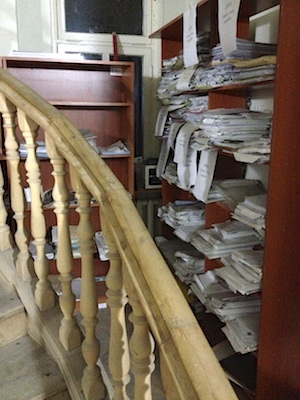Many governments are now publicly releasing swaths of new data each month. A growing number of private companies are doing the same, notwithstanding tensions over issues likemandatory disclosure and privacy. Used well, this windfall of raw material can do much to inform policymaking and public debate. But it can do even more—if it can be combined with information from other sources, including crowdsourcing, to improve how government regulates. The practical challenge, however, is that far too much valuable data still sits in silos, gathering dust, unavailable and unhelpful even to the regulators who collect it.
Imagine, for instance, if an inspector at an environmental agency had ready access to data on a company’s compliance with regulatory rules—on clean water, air, and chemical disposal, for example—from across her agency. Imagine if she also had access to data from other agencies about corporate compliance with workplace safety and financial regulatory rules? She could then plan her regional inspections to increase the chance of discovering bad corporate behavior. At the very least, it is worth finding out if access to better systematic data about the companies government regulates and their compliance with laws and regulations could improve the effectiveness and efficiency of regulation.
single Category Archives open data
After weeks of consultation—and a “blink-and-you’ll-miss-it” public comment period—a group of expert advisors to the UN has issued a report on the “data revolution” for sustainable development.
“A World That Counts,” released in final draft on November 6, was prepared for the Secretary General’s office amid planning for the Sustainable Development Goals (SDGs) agenda launching in 2015, and an urgent need for data and information to support the SDG process.
 An aspiring government watchdog in Armenia faces an uphill battle. Weak safeguards against corruption and a government-dominated media have led to widespread distrust of elected officials and most news outlets. A recent Open Society Foundations report cites the country for "lack of independence of regulatory institutions, non-transparent media ownership," and a slow-developing media sector.
An aspiring government watchdog in Armenia faces an uphill battle. Weak safeguards against corruption and a government-dominated media have led to widespread distrust of elected officials and most news outlets. A recent Open Society Foundations report cites the country for "lack of independence of regulatory institutions, non-transparent media ownership," and a slow-developing media sector.
Levon Barseghyan, activist and founder of the Journalists Club Asparez, says mainstream media has so little credibility that Armenians watch state TV using "a vice versa approach."
Asparez (or "Arena") hosts one of the country's top 10 news web sites, Asparez.am. To foster public knowledge and government accountability, they are also tracking public funding to schools and regional governments, then posting and charting the results online at PublicData.am.
